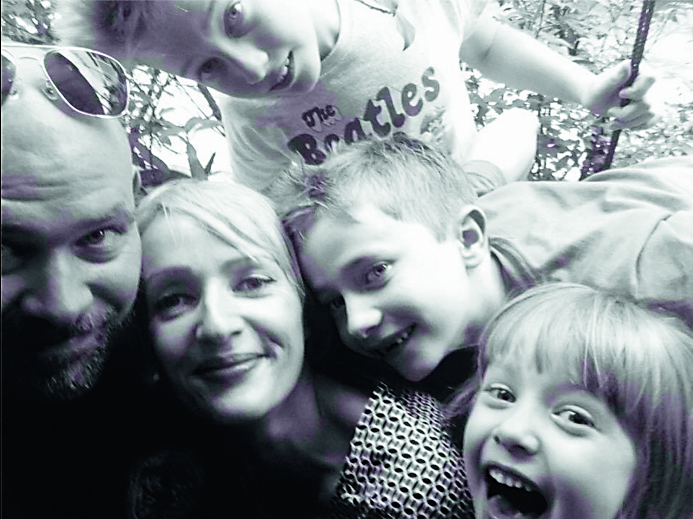Written by Claire Waller, Director of Learning and Teaching, Year 2 Teacher, Nexus International School.
If parents want to give their children a gift, the best thing they can do is to teach their children to love challenges, be intrigued by mistakes, enjoy effort, and keep on learning – Carol Dweck
As parents we often wonder: How can I motivate my child? How can I encourage my child to be more resilient when facing challenges? If we can answer these questions then we are able to support our children in reaching their true potential.
Carol Dweck, a world-renowned Stanford University psychologist, has carried out decades of research into motivation. Dweck believes that success is related to our attitudes and says that we approach learning with a ‘fixed’ or a ‘growth’ mindset.
With a fixed mindset, children believe that their intelligence cannot be developed, that they are born smart or dumb and therefore do not see the point in trying hard. Effort is not seen as a path to success, so children avoid challenges and give up easily. They fear failure and do not learn from their mistakes.
With a growth mindset, children are less concerned about how they look to others and understand that in order to be successful you must work hard and not give up. They enjoy challenges and see failure and mistakes as an opportunity to learn. Whatever their ability, high or low, they know that through practice and hard work they can improve.
Of course, most of us will have a fixed mindset in some areas and a growth mindset in others. If the fixed mindset traits sound familiar to you there is good news! You can shift your own mindset. It takes time and practice, but it can be done. So if having a growth mindset is a key to success; how do we develop this in our children?
At Nexus International School, Putrajaya, helping our students to develop a growth mindset is key in our approach to teaching and learning. We recognise the importance of instilling a growth mindset with our students from Early Years up to International Baccalaureate Diploma and have trained teachers, students and parents on how this can be done. Using teaching methods that provide challenge and support, students are taught the importance of understanding what their next steps in learning are. There is no limit to learning and in all curriculum areas children understand that we can always improve and challenge ourselves to reach our highest potential.
Parents at Nexus ask us how they can further support and develop this growth mindset at home. A few of the tips that were share with parents are:
Model a growth mindset yourself. When was the last time you showed your child that you found something diffi cult but did not give up? It could be using a new computer programme or learning a new skill at work.
Talk with your children about your own challenges and how you overcome them. Discussions around the dinner table should not just be about what you did well, but should focus on what you found difficult today. How did you overcome that?
Celebrate overcoming difficulties. Our children need to learn that success does not come easily but takes hard work and resilience.
Always avoid labelling your child ‘the smart one,’ the ‘artist’ or ‘mathematician’. In doing this you are setting them up for failure. What do they do if they find something difficult in Maths but feel the pressure to maintain a reputation? They are so afraid of failing that they often will not try or ask for help.
Another tip that we share is making our praise meaningful. We all want to boost our children’s self-esteem and our natural instinct is to praise everything they do. We have probably all been guilty at some point of saying, “Wow that’s great!” when we have had a scribbled picture thrust under our noses. Children, however, can see through praise that is not meaningful and honest, thus diminishing the positive impact of praise. Next time you praise your child for doing something well, identify what exactly it is that they have done well. For example, “You have taken great care colouring your picture. Now how could you make it even better?” When you turn praise into a meaningful dialogue you will be supporting your child in their path to success.
It’s never too late to shift a mindset. Next time you see your child becoming frustrated by a challenge and giving up, tell them the story of Lionel Messi who at 11 years old was cut from his school football team because of a growth deficiency and went on to be FIFA player of the year three times, or Dr Seuss whose first book was rejected from 27 publishing companies and went on to be the best-selling author of all time!
Through teaching these lessons to our children, we can make them more resilient learners who attack new challenges with an acceptance that this may not be easy, but through practice and hard work, they can master any skill. Support your child’s success by changing their language from “I can’t do this!” to “I can’t do this… yet!”
For more information, please visit www.nexus.edu.my
Read more:
- Christmas at the BSKL
- GIS Students Win Edexcel Medallion Award 2014
- AISM Student Earns Medal in Putrajaya Cup Competition
Source: The Expat magazine December 2015
"ExpatGo welcomes and encourages comments, input, and divergent opinions. However, we kindly request that you use suitable language in your comments, and refrain from any sort of personal attack, hate speech, or disparaging rhetoric. Comments not in line with this are subject to removal from the site. "























